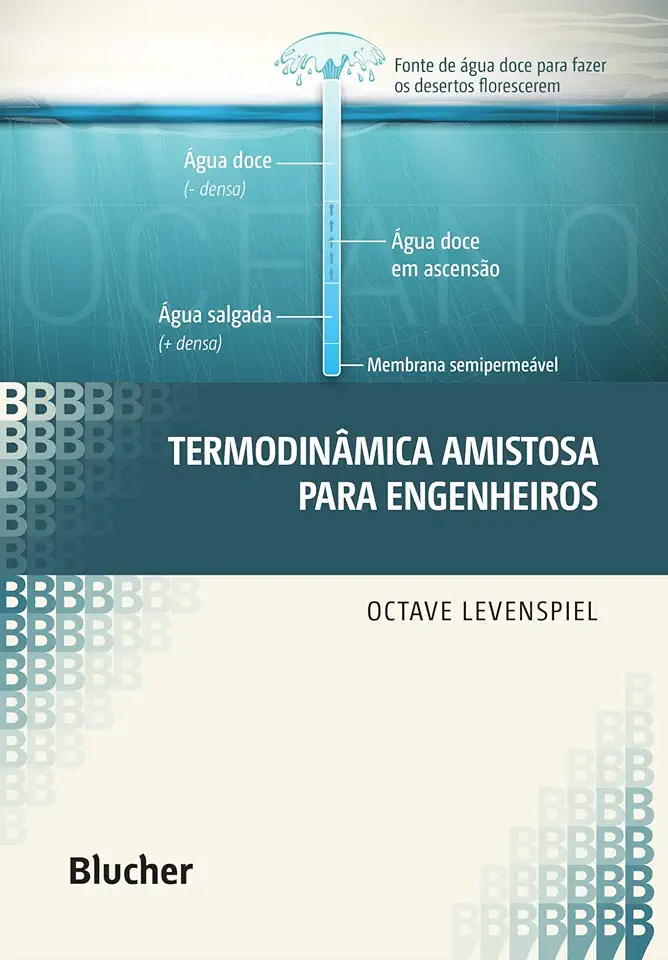
Friendly Thermodynamics for Engineers - Octave Levenspiel
Friendly Thermodynamics for Engineers: A Comprehensive Guide to Understanding the Fundamental Principles of Thermodynamics
Introduction
In the realm of engineering, thermodynamics plays a pivotal role in understanding the behavior of energy and its transformation. Friendly Thermodynamics for Engineers, authored by the renowned Octave Levenspiel, offers a comprehensive and accessible introduction to this fundamental discipline. This book is a must-have resource for aspiring and practicing engineers seeking to master the intricacies of thermodynamics and its practical applications.
Key Features:
Comprehensive Coverage: Friendly Thermodynamics for Engineers provides a thorough exploration of the fundamental principles of thermodynamics, encompassing topics such as energy, entropy, heat transfer, and fluid mechanics.
Engaging Writing Style: Levenspiel's writing style is characterized by its clarity, wit, and engaging anecdotes, making complex concepts easy to grasp and remember.
Real-World Examples: The book is enriched with numerous real-world examples and applications, illustrating the practical relevance of thermodynamics in various engineering fields.
Problem-Solving Approach: Each chapter concludes with a set of thought-provoking problems, encouraging readers to apply their knowledge and reinforce their understanding of the material.
Chapter Summaries:
Chapter 1: Introduction to Thermodynamics
- Provides an overview of the field of thermodynamics and its significance in engineering.
- Introduces key concepts such as energy, heat, and work.
Chapter 2: The First Law of Thermodynamics
- Explains the fundamental principle of energy conservation and its implications for engineering systems.
- Discusses various forms of energy and their interconversions.
Chapter 3: The Second Law of Thermodynamics
- Explores the concept of entropy and its role in determining the direction of spontaneous processes.
- Introduces the concept of exergy and its importance in assessing the efficiency of energy conversion processes.
Chapter 4: Properties of Pure Substances
- Presents the fundamental properties of pure substances, including pressure, volume, temperature, and internal energy.
- Introduces the concept of the ideal gas and its equation of state.
Chapter 5: Heat Transfer
- Discusses the mechanisms of heat transfer: conduction, convection, and radiation.
- Provides analytical and empirical methods for calculating heat transfer rates.
Chapter 6: Fluid Mechanics
- Introduces the fundamental principles of fluid mechanics, including fluid statics, fluid dynamics, and Bernoulli's equation.
- Discusses the behavior of fluids in pipes and channels.
Chapter 7: Power and Refrigeration Cycles
- Explores the principles of power generation and refrigeration cycles, including the Carnot cycle, Otto cycle, Diesel cycle, and Rankine cycle.
- Analyzes the efficiency and performance of these cycles.
Chapter 8: Chemical Thermodynamics
- Introduces the concepts of chemical thermodynamics, including enthalpy, entropy, and Gibbs free energy.
- Discusses the application of thermodynamics to chemical reactions and equilibrium.
Conclusion:
Friendly Thermodynamics for Engineers is an invaluable resource for engineers seeking to gain a comprehensive understanding of the fundamental principles of thermodynamics. Levenspiel's engaging writing style, coupled with real-world examples and thought-provoking problems, makes this book an essential companion for students and professionals alike. Whether you're just starting your journey in thermodynamics or looking to deepen your knowledge, Friendly Thermodynamics for Engineers is the perfect guide to help you master this fascinating field.
Call-to-Action:
Don't miss out on this opportunity to enhance your engineering knowledge and skills. Order your copy of Friendly Thermodynamics for Engineers today and embark on a journey of discovery into the world of thermodynamics!